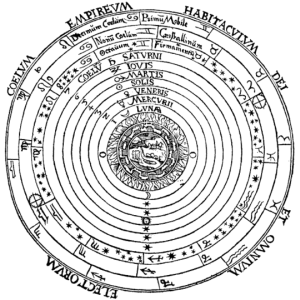Flavoring a Game World with Religion

This month’s RPG Blog Carnival topic is religion, which is something I’ve thought about before. I won’t rehash those articles. One describes designing religions for game worlds and another walks through a couple of examples. Instead, the focus here is how to make a game world stand out because of its religion.
There are at least three ways to do this:
- Make the religion very different from typical game world religions.
- Add a lot of game-rule-neutral detail to the game world’s religions.
- Add some game mechanics specific for the world’s religions.
First a little about methods #1 and #2 before diving into method #3.
As mentioned in my Fantasy Religion Design Guide, you can create a monotheistic or atheistic (worshiping a philosophy) to stand out from other game worlds as most game worlds are polytheistic. Despite this difference, the game mechanics can stay virtually the same. For example, different aspects of the philosophy can grant different priest’s powers or domains just like those game mechanics vary for priests of multiple gods. In a monotheistic religions, different saints or angels can grant different powers. You may also stand out from other game worlds by having multiple religions in the world instead of just one religion that has many gods. How these different religions treat each other and if their gods know of each other is another way to vary your game world’s approach to religion. The relationship between the religions can even be a major focus of a campaign.
If you’re willing to put some work into developing your game world’s religion(s), add detail to the religions or gods to help them stand out. In addition to a short bio or description of each god or philosophy and holy symbol and powers/domains granted, develop the god’s/religion’s/philosophy’s holidays, taboos, architecture of churches, requirements of the faithful, priest’s attire, etc. Go as deep as you’re interested in going while focusing on which aspects of the religion will affect the players and your campaign’s plot. (A player character priest’s religion and the religion of any key foes would be important to develop, for example.) Then make sure you use the material you’ve developed. When the characters meet a high priest of the religion, describe him in detail. When they visit a temple, describe its architecture or the clothing of the priests or what the religious ceremony is like.
There must be many examples of a game world’s religion influencing game rules, but the most prominent example that comes to mind is the effect of the moons on magic in Dragonlance. If you are not familiar with Dragonlance, three gods (one for evil, one for neutral and one for good wizards) are given domain over magic and each of these gods is associated with a moon (evil is a black moon, neutral is a red moon and good is a white moon.) A wizard is more powerful when his moon is closer to full. A wizard is slghtly weaker if his moon is closer to new. This balances because while each moon’s phase cycles vary, each wizard will get the same bonuses and negatives over each cycle.
What are some other ways to do something similar? Sticking with the celestial, one can adjust a priest’s power based on whether a constellation representing his god is in the sky. (This can even work during the day–the constellation is still there, but it just can’t be seen due to the sun’s light.) However, both of these approaches (moon phases and constellations) would require a game master to create a fairly complicated chart of what moons or constellations are in the sky and then cross reference this chart with what day it is in the game.
Fleshing out the holidays of your religion is another way to grant a bonus to each religion and it is less complicated tracking moon phases or constellations. On major holidays perhaps a priest would gain a bonus higher level prayer and on worship day each week he may gain a lower level spell. This idea could represent an infusion of power that the god received from the spiritual energy of his followers’ worship that the god then bestows on his clerical order. For example, if we were to map a couple of real world religions to this, Jewish priests might gain a minor power on Saturdays and they would get a major bonus on Rosh HaShana, Passover, Chanukah and maybe other religious holidays. Similarly, Islamic priests would have an extra minor power on Fridays and they might have an extra major power during Ramadan.
These extra powers could be considered by some to be balanced because all priests would gain similar powers at different times. However, you can easily think of a way to offset the bonuses if you want to better ensure overall game balance. In the example above where Islamic priests gain a major power during Ramadan, the GM could give the priests a temporary constitution reduction to represent the effects of fasting that month.
Adding locations of power is another way to allow religion to impact the game. A city with a particular religion’s shrine could grant priests of that religion some special ability or extra prayer related to the shrine’s purpose. Likewise a location where some deed occurred might grant something to followers of that religion. As an “evil” example, a temple where an egregious sacrifice was made might grant additional powers to the priests of that religion if they are within the building or within a certain distance.
Finally, if the characters are pursuing something important to the religion’s ideals or god, priests of that god or religion might gain some special favor from that god/ideal. If there is a holy war among gods and the characters are attempting to rout a temple of the enemy religion, that god might grant the priests and paladins of the party extra power(s). Again, to balance this the characters must suffer some penalty at other times such as when they don’t strictly follow the religion’s observances or perhaps they will be exhausted for some period of time after the current mission is completed.
[Shameless plug: in addition to writing about designing a religion for a game world, I’ve also written about designing a local campaign area.]

0 Comments on “Flavoring a Game World with Religion”